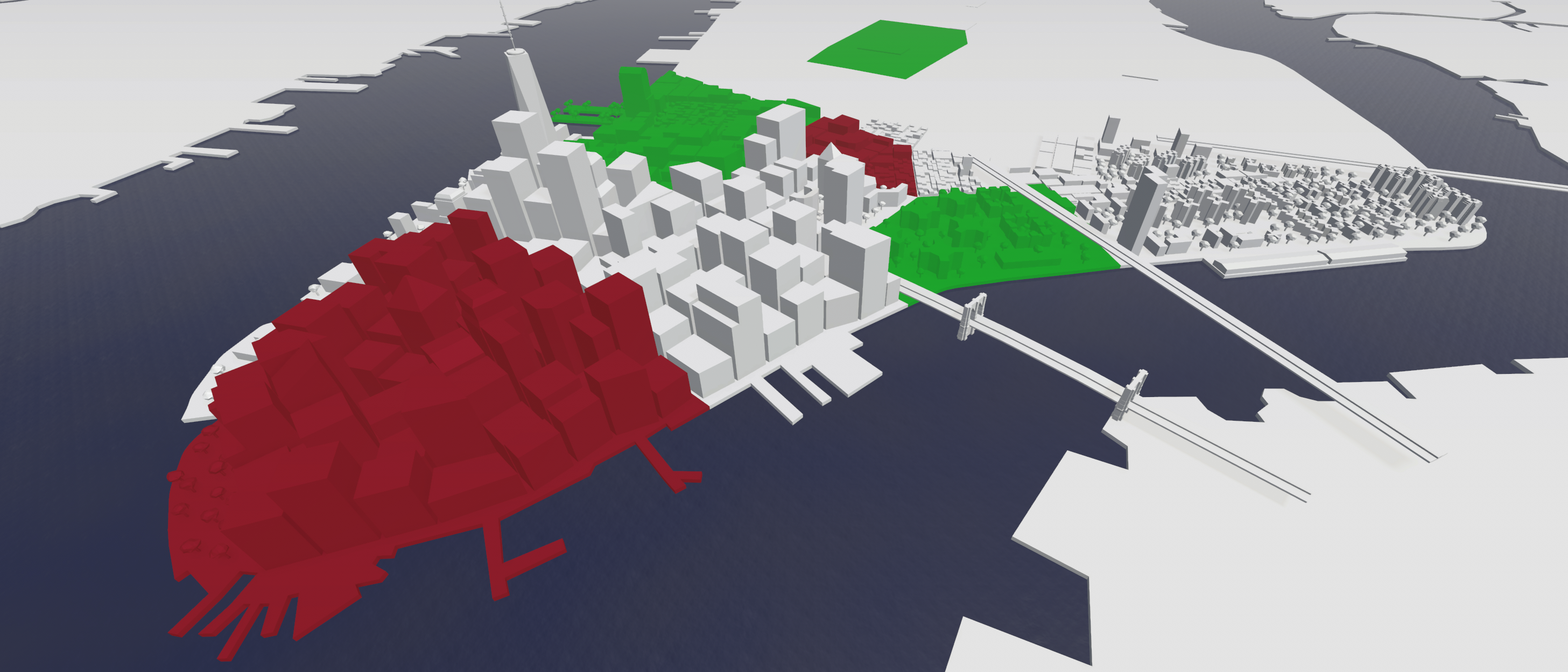First hello and the game
A quick introduction to me and the game.
Who am I?
Hello, I’m Alex Mrosk, a passionate 24-year-old game developer from Brazil. While you haven’t heard of me yet, I’ve spent the last decade immersed in the world of game development, improving my skills, and embarking on projects that, despite not going anywhere, gave me a lot of experience in a multitude of genres and game mechanics.
What is the game about?
While it’s still nameless for now, let’s call it “Crime Game” for the sake of this post.
Crime Game is a grand strategy and management game where you step into the shoes of a gang leader. You’ll recruit crew members, acquire properties, establish drug production logistics, engage in turf wars with rival gangs, and even navigate the murky waters of evading the prying eyes of the police.
I aim to combine the management mechanics of tycoon games like “Software Inc” and “Capitalism Lab” with the resource and production management found in “Anno 1800” and “Factorio”. At the scale and depth of grand strategy games like “Europa Universalis” and “Crusader Kings”.
Thematically, “The Godfather: The Game” and “Scarface: The World Is Yours,” along with their respective films and other works in the genre, serve as inspirations for the ambiance and atmosphere I intend to portray in the game.
Game Modes.
I plan on making three different game modes.
Standard Mode: In this mode, players enter a handcrafted world populated with various gangs, each possessing unique sizes and strengths. Players can either create their own gang or choose an existing one to lead.
Sandbox Mode: Here, gangs are procedurally generated based on the player’s chosen settings, offering endless possibilities.
Scenario Mode: In this mode, players select challenging scenarios from a list akin to those found in RollerCoaster Tycoon. Upon successful completion, players earn achievements.
Maps.

I’m planning to create a diverse range of maps, each representing a different large American city. Each map will be structured into regions, further divided into areas, and finally segmented into territories.
Territories in Crime Game can either be controlled by gangs or remain neutral. The properties within each territory vary based on their size, profile, and social class. These properties serve specific purposes, such as warehouses for storage, basements as concealed labs for production or cultivation of drugs, hideouts for refuge, and businesses as fronts for money laundering.
Logistics.

Once you acquire and assign uses to properties, they become visible in the “Logistics View,” represented as cells. This view allows players to adjust settings and establish connections between cells to streamline item movement and production processes.
Territories under player control are also displayed as cells in the Logistics View. By connecting and configuring these cells, players can set up intricate production chains tailored to their strategies.
For example, if you acquire a warehouse and designate it as a storage facility, and then purchase a house to serve as a lab, both properties will appear as cells in the Logistics View. You can arrange for chemical deliveries to the warehouse, connect it to the lab, select a methamphetamine recipe, and link the production line to the territory cell for sales.
Players can further optimize their operations by upgrading cells within the Logistics View. Upgrades allow for enhanced concealment of illegal activities, increased efficiency in production processes, and expanded storage capacity. For instance, upgrading a hideout cell can make it harder for law enforcement to detect criminal activities, while boosting the efficiency of a lab cell can reduce production time and resource consumption. Similarly, increasing the capacity of a warehouse cell enables players to store larger quantities of materials and products, facilitating larger-scale operations and more substantial profits.
Rackets.
While drugs are a lucrative avenue for criminal enterprises, they’re not the only business in town. Some may opt to steer clear of the drug trade altogether, choosing instead to profit from “honest vices” that authorities might overlook more readily. Illegal gambling, loansharking, selling stolen goods, and charge protection. The game will offer a variety of rackets for you to explore and exploit. Each racket comes with its own set of challenges and opportunities, as well as their own mechanics, allowing players to diversify their criminal portfolio and adapt their strategies based on the risks and rewards of each venture.
Mods.
I don’t think I need to explain how mods can elevate a game, just look at Skyrim, Rimworld, and every Paradox’s game ever. From the outset, I prioritized making Crime Game as mod-friendly as possible, aiming to create an environment where modders feel encouraged to make my game their own.
To achieve this, I’ve designed the game’s foundation to load data from easily editable text files during initialization, including art assets like UI icons and the map. For those looking to modify gameplay mechanics and create more intricate mods, the game is designed to be easily decompilable and capable of loading .dll files.
Taking inspiration from Paradox’s games and Rimworld, each mod in Crime Game is structured as a folder that the game can recognize and interpret. This setup allows for a flexible load order, where mods loaded later can add to or replace elements from mods loaded earlier. Whether it’s the base game, DLCs, or mods, Crime Game handles them all uniformly. This approach ensures that modders have access to the same workflow and capabilities that I do.
